WADA helped with Novitzky investigation
Howman on the UCI, Armstrong and the future fight against doping
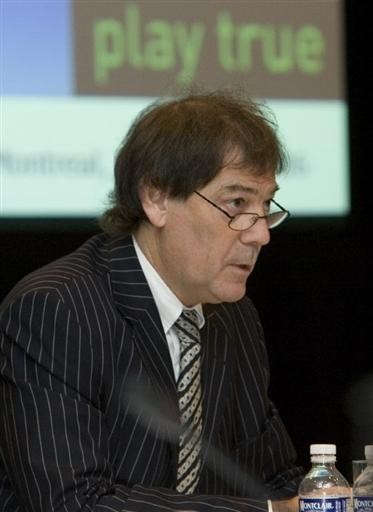
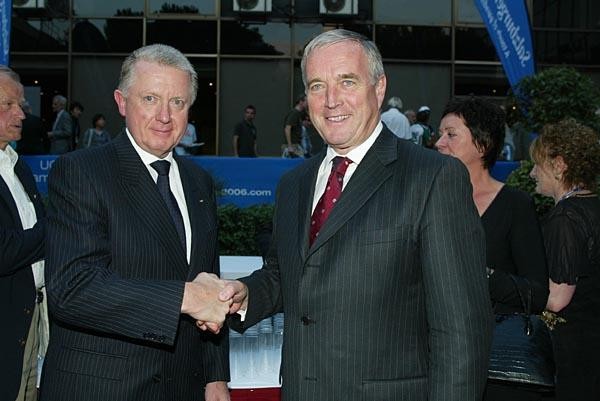
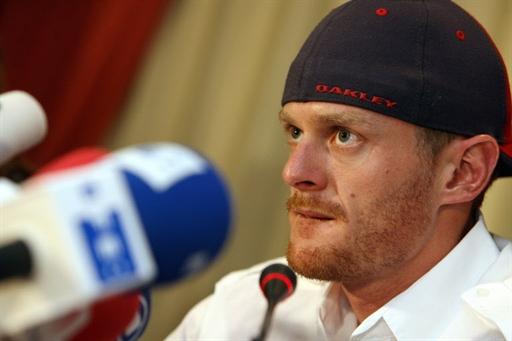
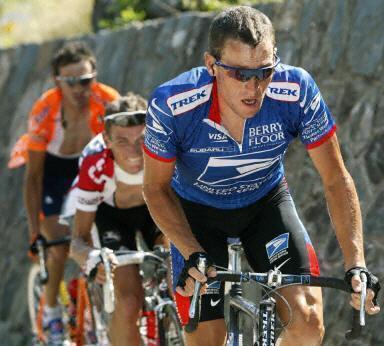
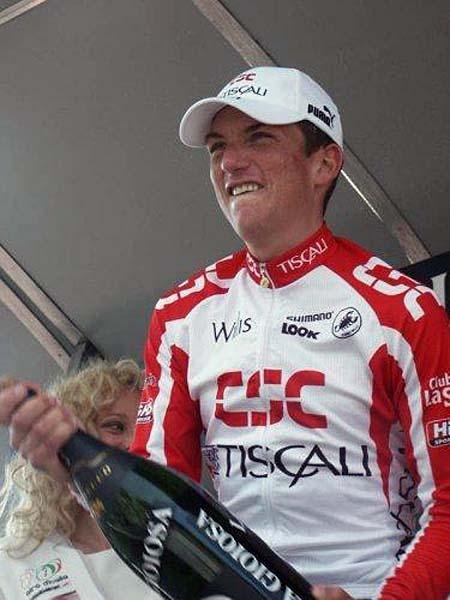
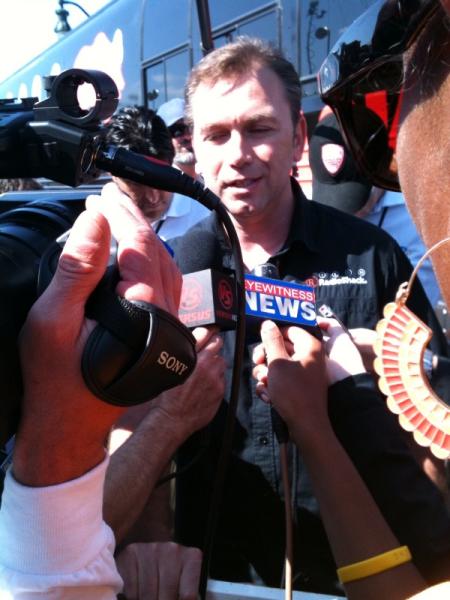
World Anti-Doping Agency director-general David Howman has told Cyclingnews that his agency, along with the help of Interpol, helped facilitate meetings between the FDA and several parties across the globe in the investigation understood to involve Lance Armstrong and his former US Postal team.
Howman confirmed that Jeff Novitzky and investigators from the Food and Drug Administration (FDA) first made contact with WADA last summer, and that although he has not met with the US agency, there has been a level of collaboration.
“I’ve facilitated meetings that they’ve had with other people,” Howman told Cyclingnews.
“We learned that there were enquiries in the US and then there were enquiries going on in Italy and one or two other countries. What we were entrusted with was making sure that those people who were doing these enquires could liaise with each other, so we brought them together with Interpol so that they could do that.”
Those meetings included the French Anti-Doping Agency (AFLD, police forces from both Italy and France, and according to Howman, parties from Switzerland and Spain.
“We were aware that investigators in the US wanted to talk to people on the ground in France, Spain, Italy and Switzerland. We were able to introduce people and then clear out.”
Get The Leadout Newsletter
The latest race content, interviews, features, reviews and expert buying guides, direct to your inbox!
Howman stated back in October 2010 that the FDA’s work into alleged doping and the facilitation of doping could be as significant as the BALCO case. Much of the BALCO investigation work was carried out by Novitzky, and Howman reiterated his comments on the seriousness of the investigation in a recent documentary with “60 Minutes.”
“I think that these guys have been working away for more than a year - the outcomes will be as significant or even more significant that BALCO, in that some of the issues we want to make clarified will be clarified,” he told Cyclingnews.
During the “60 Minutes” documentary, former professional cyclist and teammate of Armstrong, Tyler Hamilton, made allegations against the seven time Tour de France winner, while also admitting he had taken performance enhancing drugs. Hamilton is currently serving an eight year suspension having tested positive twice during his career. Armstrong denied the allegations made against him.
Testing athletes is never enough
Howman’s appearance on “60 Minutes” revolved around testing procedures and allegations that the UCI had covered up a positive test for Armstrong from the 2001 season. Both the UCI and Armstrong have denied this.
“What I was asked to talk about was the process of taking samples from athletes. I pointed to the example of Marion Jones,” Howman said.
Jones, a former athletics star, was part of the BALCO investigation and lied under oath. She later admitted her guilt but served a jail sentence for perjury.
Howman admitted that her case was a prime example of how testing was not the most reliable form of catching cheaters and that new formats must be employed by agencies charged with cleaning up sport.
“She had hundreds of tests, they all returned negative and yet she cheated for seven, eight years and then admitted it. What I think is very plain is that the scientific process - urine and blood analysis - is not perfect and it can be beaten, and has been beaten and we know that. So what we need to do is figure out how we can get evidence in other ways.”
“We’ve seen the limitations in the sample process and analysis so what we’ve done is we’ve linked up with Interpol, we’ve worked very hard where countries have laws in place and we’re about to sign a deal with the World Customs Organisation and we want to make sure that where enquires take place the evidence is shared with the sport. That’s what we been building over the last four or five years. I made the comments on “60 Minutes” so that people could read into what they wanted from them.”
According to Howman catching cheats, dopers and more importantly those that facility unsporting ethics, is based on tightening the noose whenever and however possible. Aware that labs are beatable WADA will work closely with border controls during the 2012 Olympic Games in a bid to stop the transportation of possible substances. WADA has already made public statements on the possibilities of removing B-sample testing in a bid to deliver their funds into areas where they can be maximised. Howman also praised the likes of Landis and Hamilton for coming forward and sharing their pasts.
“We’re trying to make sure that money is not wasted in testing, so let's not rely on numbers, instead let's look at the quality of testing so that when you’re suspicious of someone you can target test and that’s a better use of money."
“The second aspect is that there are holes in testing and we know that we can get evidence in other ways and we’re advancing on all fronts.”
“I’m never going to say that anything is ‘going to be won’. You tell me when you’re going to get rid of plagiarism in journalism and I’ll tell you when we can get rid of doping in sport,” he said.
“You win a lot of battles and you narrow the gap between the cheaters and the good guys and you make it better for the clean athletes and that's the real emphasis for us, to make sure that the athletes that are training hard and working hard and are clean don’t have to compete against cheats. That’s what we’re aiming for.”
Cycling’s case and the UCI
During last week’s “60 Minutes” exposé allegations were made against the UCI with Hamilton backing up claims originally made by Floyd Landis that cycling’s governing body had covered up a positive EPO test on behalf of Armstrong and that Armstrong and his former team director Johan Bruyneel met with the laboratory and the UCI.
Howman declined to comment when asked if WADA would launch an investigation into the UCI’s handling of the situation. Instead, WADA will wait for the FDA investigation to be completed before any measures are taken.
“We were not in a position to do anything in 2001. Our rules didn’t come into affect until 2004. From 2004 onwards I can comment and what I can tell you in general is that when a new analysis comes out the labs operate cautiously when they have a positive and the step that we accept and know about is they say it’s suspicious and what we trust will happen is that the testing agency will go and collect another sample from the athlete and then they can say if they want to press on and are confident with the positive. They just want to be sure before they might have to go to a tribunal. We didn’t have that responsibility or jurisdiction in 2001.”
“We’re not going to do anything until the enquiry is complete and all the issues have been laid out. It would be premature for us to do anything off the basis of a television programme. What we will do is operate on those final findings and we’ll do whatever is necessary.”
Howman concluded by stating that while cycling has its share of problems regarding doping, it has done more than most sports to clean up its house and that more sports should look to cycling as an example.
“The interesting thing about cycling is that it does more with anti-doping programs than probably any other sport, so it does a lot. It’s the sport that’s at the forefront because of its history but it’s certainly doing a lot to change things going forward and for the athletes, the young ones coming up.”
“No sport is immune and we try and look at every sport so that every one has a good robust programme. We want consistency.”
Daniel Benson was the Editor in Chief at Cyclingnews.com between 2008 and 2022. Based in the UK, he joined the Cyclingnews team in 2008 as the site's first UK-based Managing Editor. In that time, he reported on over a dozen editions of the Tour de France, several World Championships, the Tour Down Under, Spring Classics, and the London 2012 Olympic Games. With the help of the excellent editorial team, he ran the coverage on Cyclingnews and has interviewed leading figures in the sport including UCI Presidents and Tour de France winners.
